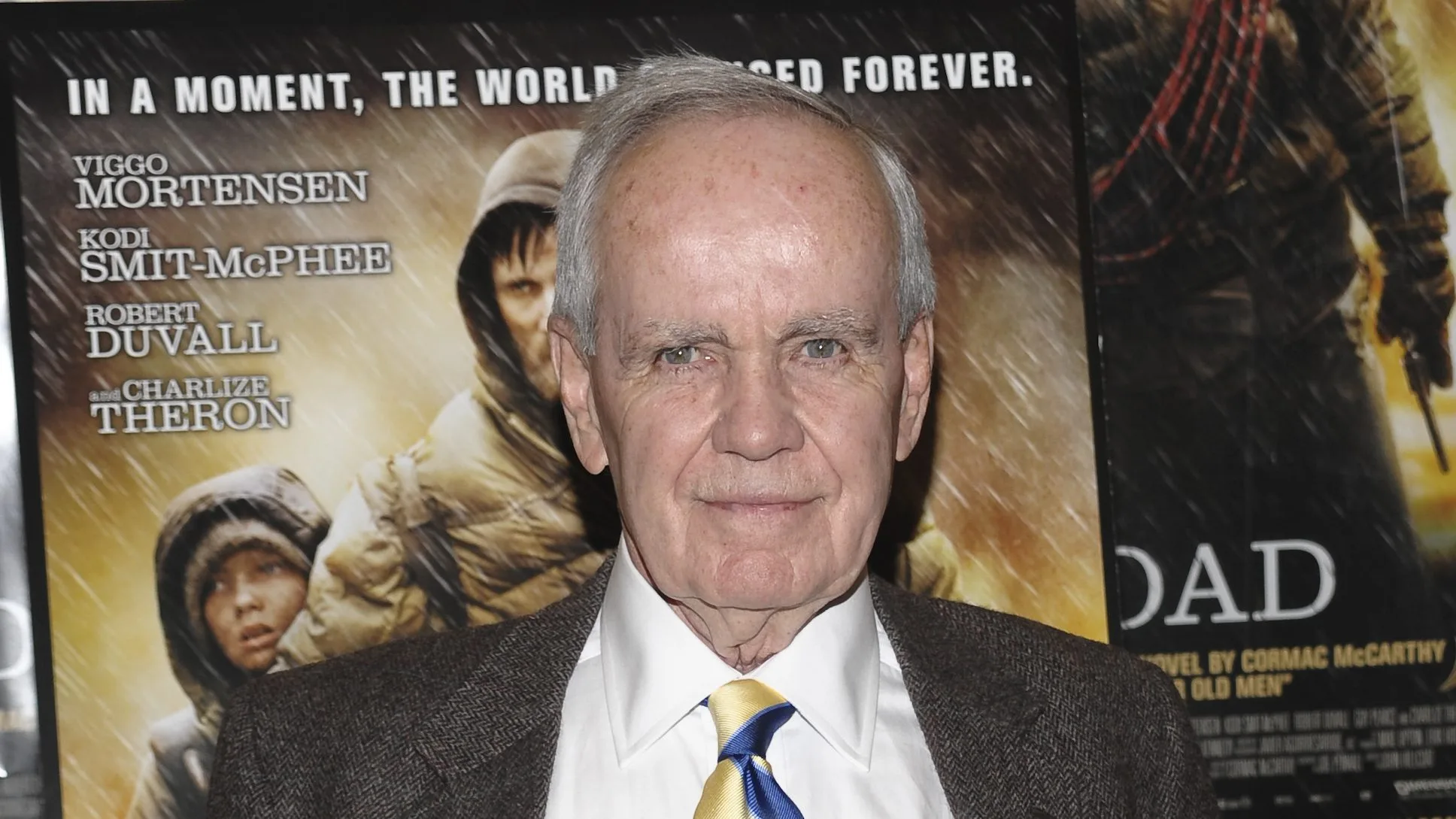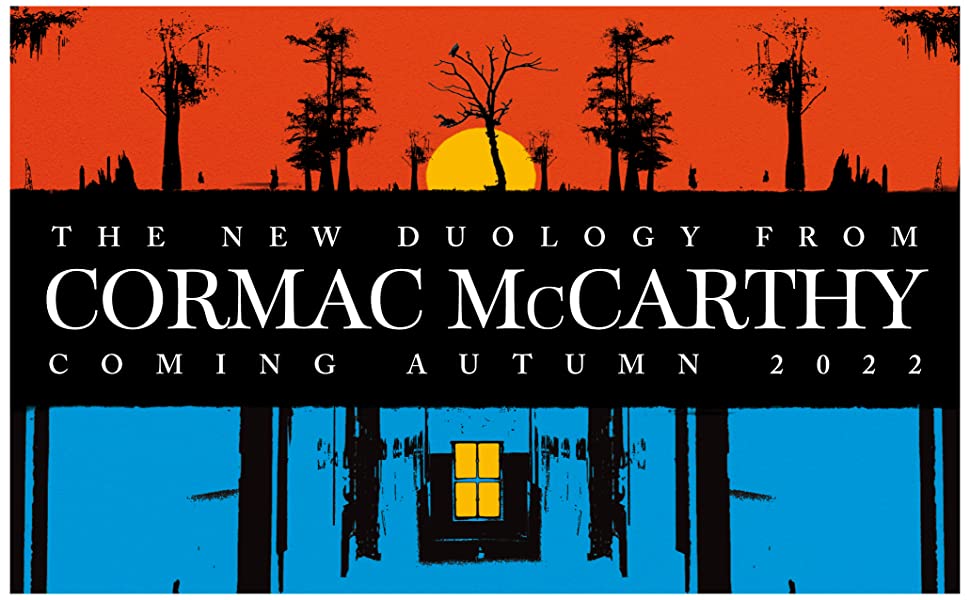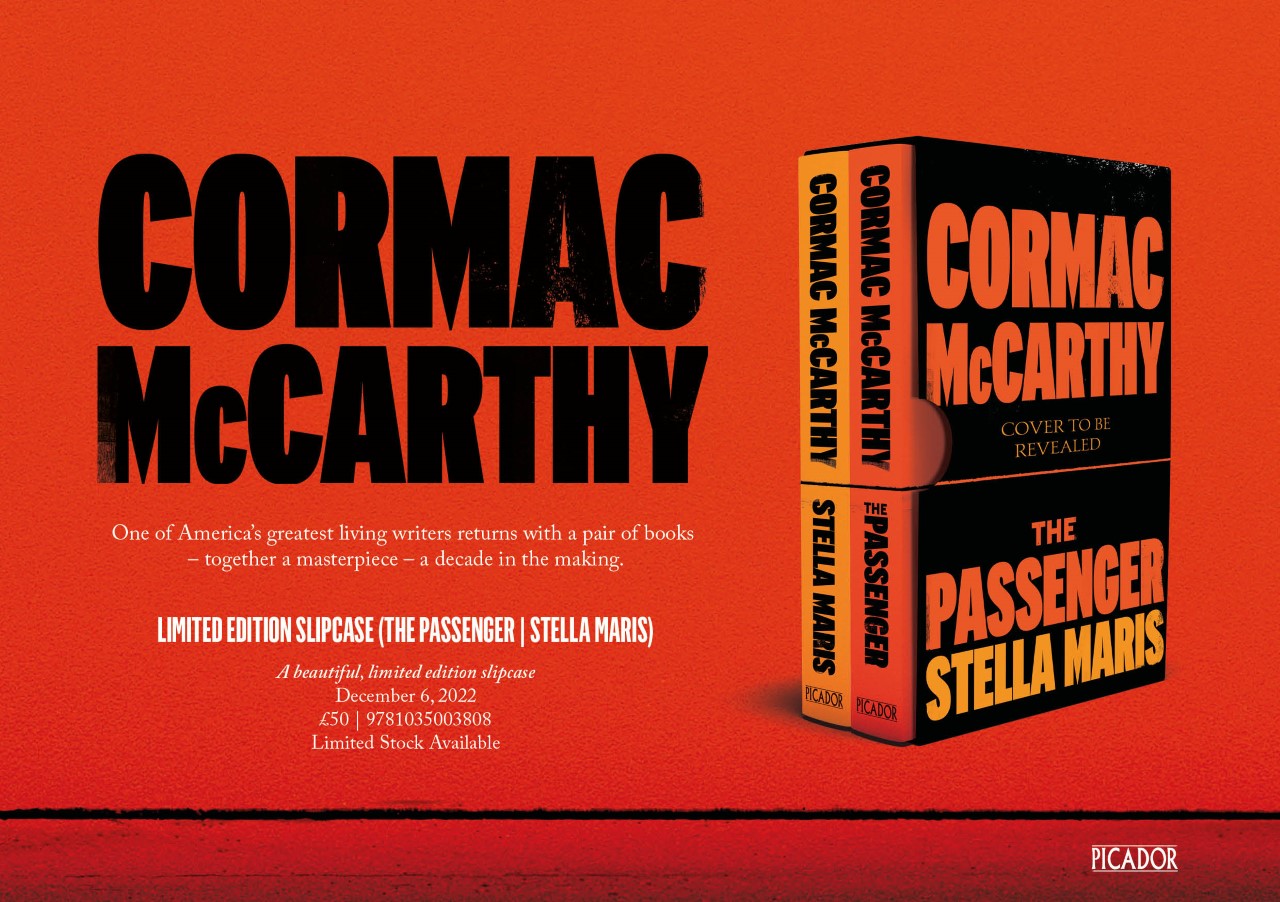The Passenger, a novel by American author Cormac McCarthy, is scheduled to be released in late October 2022. It’s his first book since The Road, which was written sixteen years ago. There will be 400 pages in The Passenger. The story follows salvage diver Bobby Western traveling around the American South and the Gulf of Mexico. Western is troubled by his father’s involvement in the American atomic bomb program. 2009 saw the discovery of notes for his next book in the McCarthy collection at Texas State University.
The Lannan Foundation held a multimedia event in Santa Fe in 2015, where the book The Passenger was formally unveiled. His time spent with scientists impacted the work, which SFI biologist David Krakauer called “full-blown Cormac 3.0—a mathematical [and] analytical fiction.” Knopf will release The Passenger on October 25, 2022. Stella Maris, the sequel, will be released the following month.
Production History
Little-known novelist Cormac McCarthy starts having recurrent nightmares of an apocalyptic future in which a father and kid travel across a destroyed America after years of translating his very realistic thoughts into novels. A mysterious yet devilishly adorable spirit visitor tells McCarthy, who is still troubled by these recent dreams, that the dreams on which his books were based were not dreams but visions of actual events and that these fresh dreams are glimpses of what is to come.
McCarthy decides to prevent these events from happening because he does not want to see the world he has grown to know as his home end. McCarthy can construct a time machine with the aid of his pals, the SFI scientists, to discover the cause of this Armageddon, but he can’t accomplish it alone. He’s going to require some travelers/passengers.
In order to follow the hints left throughout history and rescue the world, McCarthy puts together an odd squad consisting of Judge Holden, Anton Chigurh, and other violent anti-heroes from his novels as he hurtles through time.
Buckle up for this action-packed epic, the likes of which haven’t been seen since Aesop’s Fables; filled with intrigue, romance, horrifying violence, rock ‘n’ roll, ancient volcanic spirits, McCarthy’s various thoughts on pop culture and history, lengthy passages concerning Indians, treachery, complicated familial relationships, spitting, and the journey of a man to unlock the secrets of not only the universe but also himself.
Synopsis of The Passenger
PASS CHRISTIAN, MISSISSIPPI, 1980 Bobby Western zips up his wetsuit jacket at three in the morning and jumps from the boat deck into the shadows. Nine people are still belted in their seats, with hair floating and eyes empty of curiosity, when his dive light lights the sunken plane.
The tenth passenger, the black box of the aircraft, and the pilot’s flight bag are all missing from the accident scene. Yet how? Western is haunted in body and spirit by men with badges, the ghost of his father, the man who created the bomb that burned glass and flesh in Hiroshima, and his sister, who is both his soul’s love and its ruin. Western is a collateral witness to plots that can only lead to his injury.
The Passenger is a magnificent story about morality and science, the legacy of sin, and the insanity that is human awareness that traverses the American South, from the boisterous bar rooms of New Orleans to an abandoned oil rig off the coast of Florida.
About the Author: Cormac McCarthy
American dramatist and writer Cormac McCarthy. He has authored plays and screenplays in addition to 10 books in the Southern Gothic, Western, and Post-Apocalyptic genres. He was awarded the Pulitzer Prize in 2007 for The Road. The 2007 film adaptation of his 2005 book No Country for Old Men, which won four Academy Awards, including Best Picture—was based on the same name.

His earlier book Blood Meridian, published in 1985, was ranked among the top 100 English-language books between 1925 and 2005 by Time Magazine. And in a 2006 poll by The New York Times of the best American fiction books released in the previous 25 years, he came in joint second place for a book with a similar title.
Along with Thomas Pynchon, Don DeLillo, and Philip Roth, he was called one of the four outstanding American novels of his generation by literary critic Harold Bloom. Modern reviewers usually connect him to William Faulkner. The PEN/Saul Bellow Award, presented by the PEN American Center as a lifetime achievement honor, was granted to Cormac McCarthy in 2009.
The Passenger Evaluation
“His sister is deceased, yet he still loves her.” According to John Sheddan, a counterfeiter and acquaintance from college, he is Bobby Western. Even though Western dislikes the murky depths, he accepted a job as a salvage diver in the waters near New Orleans, where all kinds of strange objects are submerged. At the start of McCarthy’s looping story, an airplane with nine bloated bodies is discovered: “The people sitting in their seats, with their hairs floating. Their lips are wide, and there is no speculating in their eyes.
Ah, but there were only supposed to be 10, and now unidentified operatives are hunting Western, convinced that he stole the last passenger—or, failing that, some secret treasure—from the plane. Bobby is mathematically gifted, but not as much as his sister, about whom Stella Maris, the companion book, tells more. While Western is avoiding those agents and thinking about mathematical puzzles, Alicia, who is in her final year of life, is in a faraway asylum. Western is the son of an atomic physicist who worked at Oak Ridge to create the bombs that destroyed Hiroshima and Nagasaki.

Classic McCarthy
Although less gory than much of his writing, it is all classic McCarthy: He spent time interacting with researchers while serving as a trustee at the Santa Fe Institute, and these days, he is more intrigued with darting quarks than exploding skulls.
The author still uses many of his signature themes and techniques, such as conspiracy theories (e.g., did Robert Kennedy order the assassination of JFK?) and shocking behavior (incest is just one example), as well as beautiful language.



